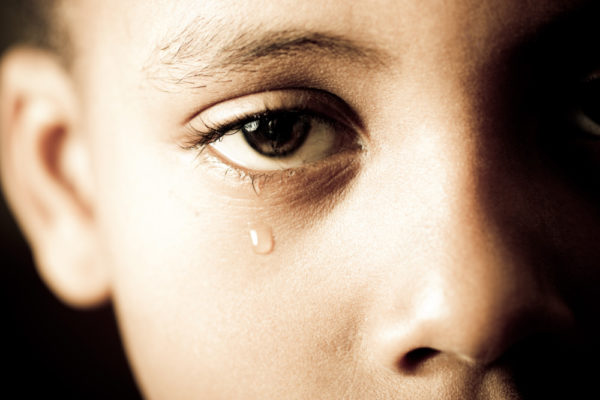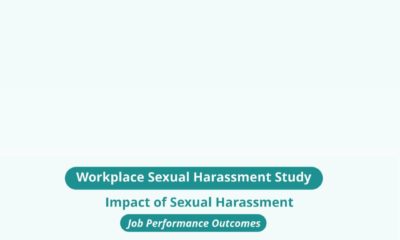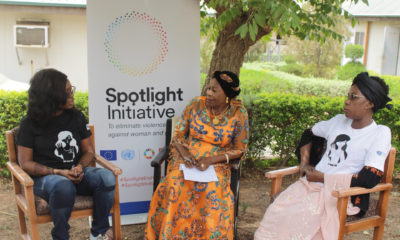Features
Stand To End Rape: Yes, Female Genital Mutilation is Still a Thing
 “26-year-old Mariam’s story is one of many stories of women left with the psychological torture of FGM. ‘I blame my mother’ she says, ‘she should have fought harder’. ‘I know there was nothing she could have done but I would have loved to see her fight’. She is the only one of her sisters to get her genitals mutilated. ‘I don’t want to have sex, I don’t think I can, I am really scared of it, I haven’t tried it, I might die a virgin’ Mariam said as tears gathered in her eyes.”
“26-year-old Mariam’s story is one of many stories of women left with the psychological torture of FGM. ‘I blame my mother’ she says, ‘she should have fought harder’. ‘I know there was nothing she could have done but I would have loved to see her fight’. She is the only one of her sisters to get her genitals mutilated. ‘I don’t want to have sex, I don’t think I can, I am really scared of it, I haven’t tried it, I might die a virgin’ Mariam said as tears gathered in her eyes.”
***
I was sitting with a colleague who asked what I do outside of work. I explained to him that I am an activist for Sexual Violence. We got talking for a while when he dropped the bomb on me. ‘I don’t believe there is anything wrong with Female Circumcision (Female Genital Mutilation). I have 2 daughters and I encourage parents to do so so that their daughters don’t grow up promiscuous’. I was so shocked and based on our conversation realised that people are in denial or possibly are unaware of the harms and laws against FGM.
Female genital mutilation has been a concern for among girl-child focused civil rights organizations. This practice is common in about 28 countries in Africa such as Nigeria, Egypt, Mali, Eritrea, Sudan, Central Africa Republic, Somalia, Djibouti, Ghana etc. It is also sparsely practiced in some communities worldwide, but Nigeria records the highest rate of FGM – thus accounting for one quarter of 115-30 million circumcised women in the world. According to UNICEF, 130 million girls and women across Africa and the Middle East are victims of this practice.
As defined by World Health Organisation (WHO), Female Genital Mutilations comprises of all procedures involving partial or total removal of the female external genitalia or other injury to the female genital organs for non-medical reasons.
Four different types of FGM are commonly practiced.
- Type I involves the partial or total removal of the clitoris and/or the prepuce. It is called clitoridectomy.
- Type II has to do with the partial or total removal of the labia or minora with or without excision of the labia majora. It is known as excision.
- Type III is called infibulation or pharaonic; it is the most severe of all. It involves the removal of the clitoris glans, the labia-minora and the opposite medial part of the labia majora. After then the vaginal office is stitched, leaving a small opening for menstruation. Infibulation is prevalent in Kaduna, Nasarawa and Bayelsa states.
- Type IV consists of all pricking, incising, scraping and cauterization of the genitalia.
According to data from the Nigeria Demographics and Health Survey (2015), 24.8 percent of Nigerian girls and women aged 15-49 have been circumcised. This accounts for 45 percent of FGM cases and South Western states having up to 55%.
Osun State has the highest prevalence of FGM/cutting in Nigeria, Ebonyi comes next with 74%. Ekiti has 73.2% prevalence rate, while Imo has 68% and Oyo has a 65.6% rate.
82 percent of Nigerian women get circumcised before the age of 5. The Violence Against Persons Prohibition Act (VAPP) (enacted in 2015) states that: “a person who performs female circumcision or genital mutilation or engages another to carry out such circumcision or mutilation commits an offence and is liable on conviction to a term of imprisonment not exceeding 4 years or a fine not exceeding 200,000 or both.” However, circumcision rates have not declined a bit and no offender has not been punished.
Despite the increasing international advocacy on ending FGM, the overall prevalence has not declined. It is also noteworthy that there is no medical justification for this abhorrent practice, neither is the procedure safe.
According to a child marriage report by UNICEF in 2016, FGM is one of the major causes of VVF – Vesico-Vaginal Fistula. Across the country and various communities, FGM procedures are carried out in traditional settings by traditional birth attendants, traditional leaders and sometimes members of the community known for the trade. There is also the issue of medicalization where FGM is now carried out in a sterile, standard medical environment. This provides the girls and their parents a false sense of security, however, the possibility for either future or immediate serious health consequences for the victims is not reduced.
There are very serious health consequences of this practice. There is the increased risk of HIV transmission, especially when the procedure is carried during communal celebrations in unsterile settings. There is shock from chronic pain and bleeding. There is damage to the urethra or anus, which may occur when the victim struggles during the procedure. This explains why the extent of the procedure is determined by chance. Other harmful effects include birth complications, dysmenorrhea, sexual difficulties with anorgasmia, chronic pelvic infections and in extreme cases even death.
Notwithstanding, many NGOs such as Daughters of Eve, Stand to End Rape Initiative, FGM National Clinical Group, Global Alliance Against FGM and Female Integrity have shown their level of commitment to ending FGM in Nigeria. One of the most serious complications arising from FGM is the mental and psychological torture experienced by the victims. Many young girls in communities where such practices are predominant live in constant fear and after undergoing the procedure. They become depressed, anxious and afraid of any form of sexual intercourse due to anticipated excruciating pain. A number of victims of FGM dread childbirth, based on the possibility of complications caused by FGM. Some become frigid and withdrawn, resulting marital disharmony.
Internationally, FGM has been regarded as an extreme violation of the right of women and girls; and while it has been officially declared illegal in Nigeria, it is still a widespread menace deeply entrenched into our social and cultural values. In a society like ours where great importance is still placed on religion, culture and traditional belief systems, tackling FGM is challenging, but can be done. The problem most people have is understanding the effects listed above. Educating more people of the health dangers girls and women are being exposed to due to this practice can have a significant effect.
It is important to note that most people perform this act based on tradition and are not fully educated. A 2016 Report by CEWARID shows that FGM takes place in societies where illiteracy is high.
Another way FGM can end is by implementing and executing the laws that already exist. Nigeria has provision of the law, but what really is a law that is not properly executed? Also, this can be coupled with more community outreach and awareness.
This is where we all come in. In my little way, I was able to educate my colleague and show him facts. You can also do the same. Learn about FGM, talk about FGM and day to day, we would make a difference.
Should you want to report a case, you can get in contact with us on 08095967000 & 08130320270 or via our email [email protected] and we would refer you to the proper authorities.
Photo Credit: Dreamstime























